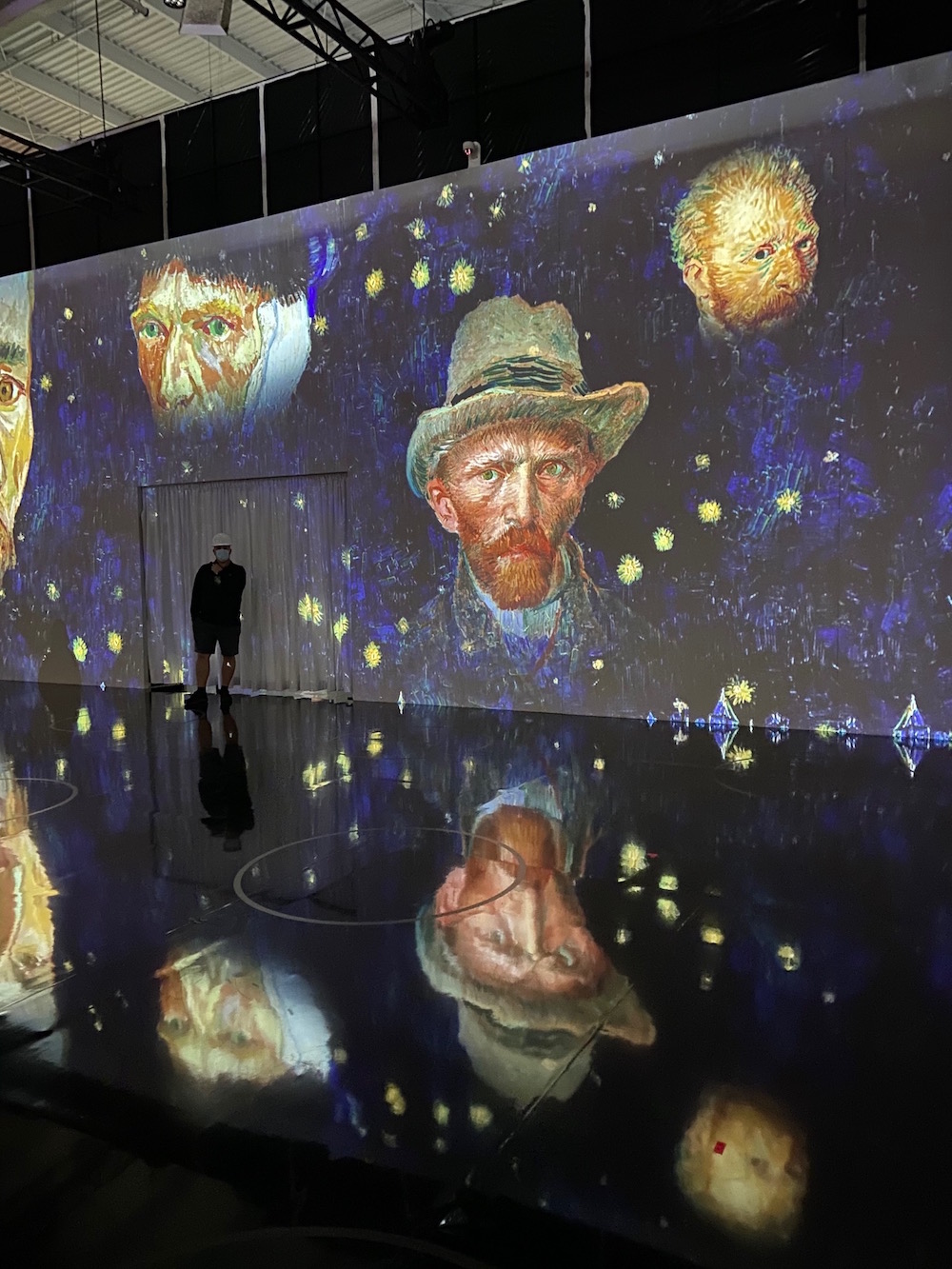
A throng of reporters filed into New York’s Pier 36, also known as Basketball City (and a former site of the NADA art fair), this week as organizers of “Immersive Van Gogh” opened up the space for a preview of their experience extravaganza.
Amid hammering by construction workers building platforms and sets throughout the 70,000-square foot space, the press donned custom-painted hardhats with distinctive Van Gogh designs (swirling Starry Night patterns and brightly colored sunflowers) for a walkthrough and demonstration of the event.
Special viewing platforms under construction inside Immersive Van Gogh at Pier 36 in New York City. Photo by Eileen Kinsella
With nearly 100 projectors splashing colorful and intricate moving images of Van Gogh’s night skies, stars, wheat fields, crows, and numerous self portraits across every possible surface (all of which is enhanced by strategically placed mirrors and soaring classical music), the experience is truly “immersive” and—to be honest—pretty incredible.
Anticipation is running high after the Van Gogh experience made a big-time appearance in the Netflix hit Emily In Paris. The exhibition, which has already been a wild success in Paris, Chicago, and Toronto, is already selling like wild in New York: the organizers said 250,000 advance tickets have been sold thus far.
Speaking to reporters, producer Svetlana Dvoretsky described it as “the largest and most elaborate” presentation yet.
Pier 36 on the Lower East Side is the site of the New York City version of Immersive Van Gogh. Photo by Eileen Kinsella.
The show was designed by Massimiliano Siccardi, with original music by Italian multimedia composer Luca Longobardi, who provided a score that combines experimental electronic music with ethereal piano.
Vittorio Guidotti is the art director and Broadway producer David Korins, who created the sets for Hamilton and Dear Evan Hansen, was brought on board as creative director. His mark on the show is already indelible.
Korins called the experience a “runaway train smash hit in every city that it has been in,” adding that he was thrilled to join the team in New York. His own research, undertaken during lockdown, involved video tours of the shows at other venues.
The “letter station” at Immersive Van Gogh New York. Photo by Eileen Kinsella.
He also delved into the life of the artist, including research into the artist’s synesthesia. It’s generally accepted that Van Gogh had a special form of the condition known as chromesthesia, in which he was able to hear color and see sounds.
“I wanted to try and humanize Van Gogh so that you see him as a man and as an artist,” Korins said.
Installation view of Immersive Van Gogh in New York. Photo by Eileen Kinsella
One of his additions to the show is a swirl of papers frozen and suspended in mid-air. It was created from digital scans of over 1,000 letters that the artist wrote to his brother, Theo, during his lifetime.
The booth allows guests to ask questions of “Vincent” and get answers from artificial intelligence designed to speak on the artist’s behalf.
Another exhibit offers visitors a closer look at one of the artist’s most famous subjects, sunflowers, while the ceiling of the entrance way, inspired by The Starry Night, and was created with more than 7,800 paint brushes dipped in multiple colors.
So, all in all, there’s a lot to see.
Installation view of Immersive Van Gogh in Chicago. Photo by Michael Brosilow.